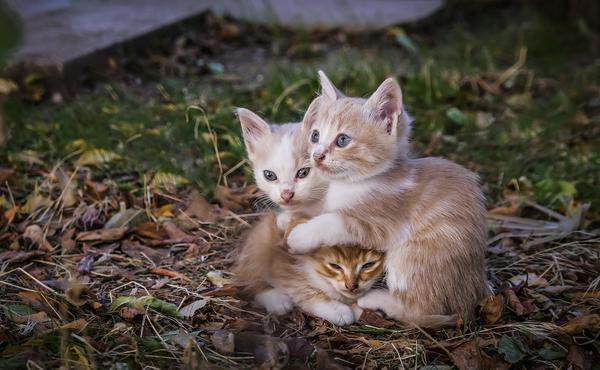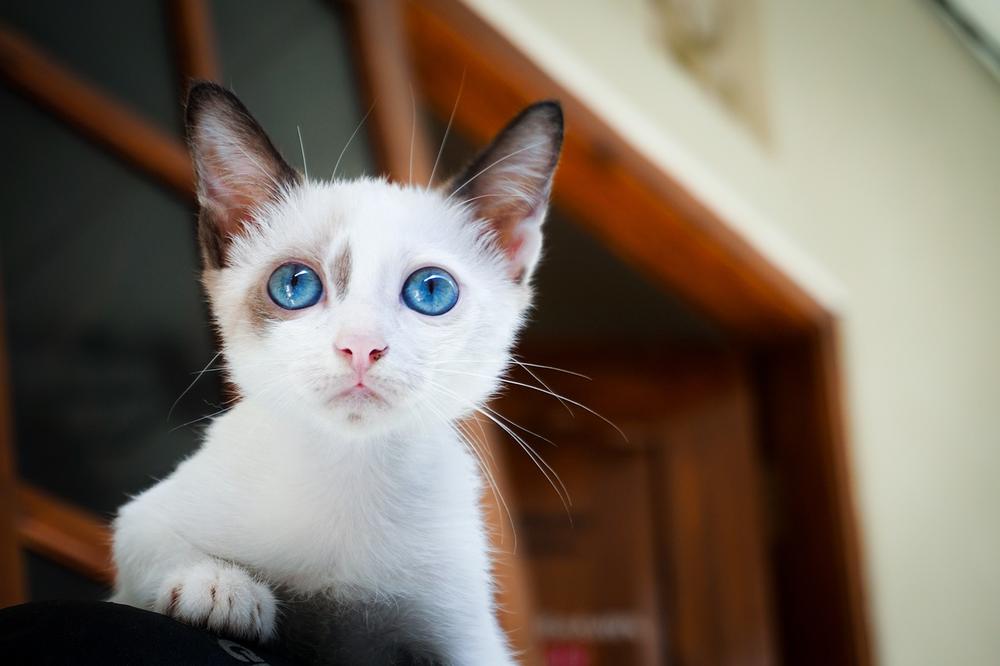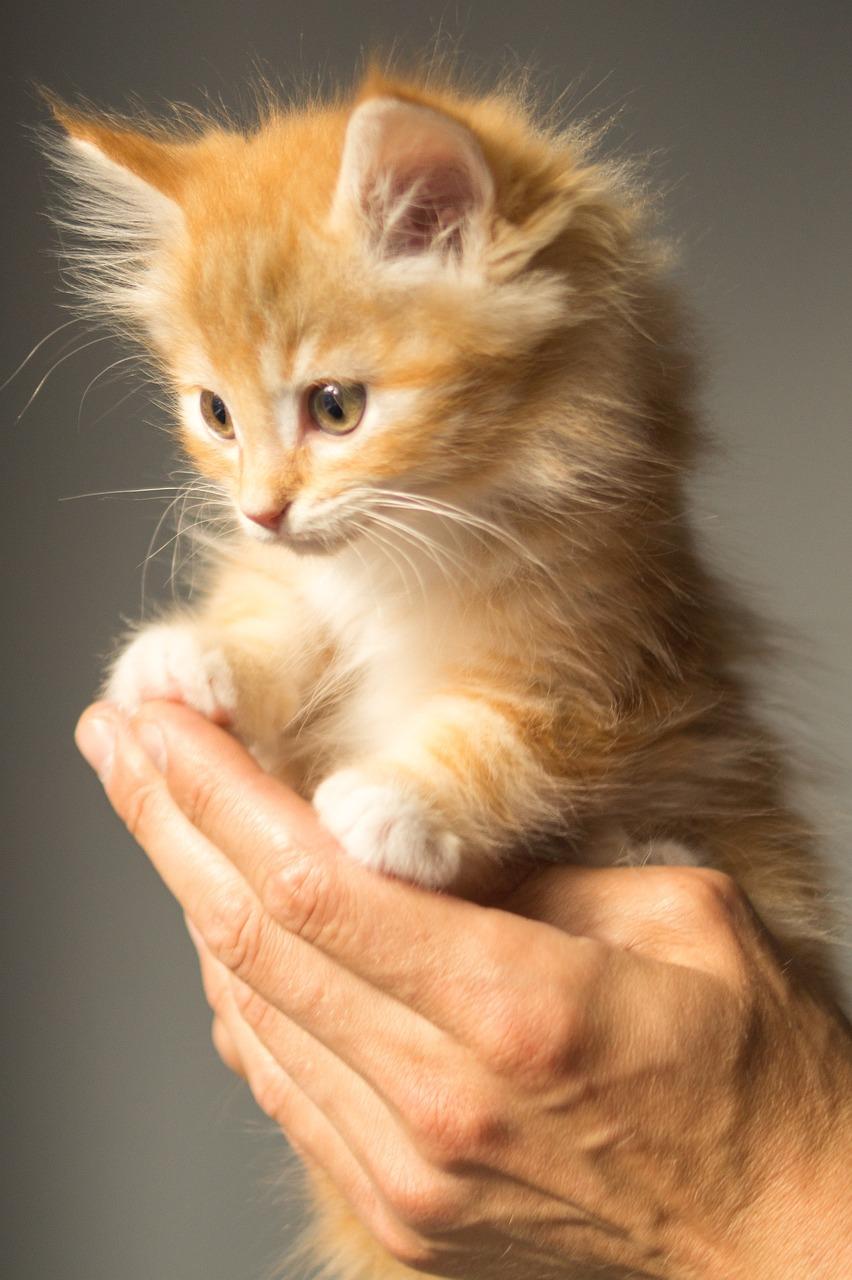Can Kittens See in the Dark? Everything You Need to Know

Worried that your kittens can't see in the dark?
Don't you just want them to be safe and well? 😊
Ever wondered if they have the superpower of night vision?
Well, guess what, we're about to find out.
Let's dive in together.
When Do Kittens Begin Seeing in the Dark?
Kittens start developing their night vision abilities at around 2 to 3 weeks old. While they can't see in the dark like superheroes, they rely on their other senses and have a reflective layer in their eyes that amplifies available light, helping them see in low-light conditions.
Kittens, aren't they the cutest?
And do those little furballs have night vision powers like adult cats do?
Let's find out!
When do kittens start seeing in the dark?
At around 2 to 3 weeks old, kittens begin developing their night vision mojo.
But here's the thing:
They can't actually see in the dark like superheroes with night goggles.
Nope, their eyes work differently.
Kitties are resourceful.
Instead of relying solely on sight in the dark, they use their other senses to get around.
They may not see your cozy bed at midnight, but trust me, they'll still find their way onto that pillow.
But wait—there's more.
Cats, including kittens, have this tool called the tapetum.
It's a shiny mirror in the back of their eyes that reflects light and sends it back to the retina.
This trick amplifies available light, helping them see in super low-light conditions.
And kittens also have larger corneas and pupils that contribute to their awesome night vision skills.

It's like they have night-vision goggles built into their eyeballs!
While it takes about 10 weeks for kittens to sharpen their visual prowess, their eyes open just 16 days after birth.
Cool, right?
Bear in mind, though, they might struggle with faraway objects because their vision is more near-sighted.
But boy oh boy, they can detect even the tiniest movement or changes in light!
Now, let's talk colors.
Kittens mainly perceive blue and green, which explains their fascination with grass and leaves.
Seeing red or pink is trickier for them.
But hey, their world is still full of wonders without all the colors of the rainbow.
And here's a final fun fact:
Kittens have a wider field of vision than us humans—about 200 degrees!
It's like they have their own little IMAX theater in their adorable heads.
Plus, their pupils are sleek slits that make them look mysterious and help them estimate distances accurately.
Who would've thought, huh?
Those tiny kittens, born with closed eyes, grow up to be masters of darkness.
So next time your kitten skillfully pounces on a toy mouse in the dark, remember just how remarkable their night vision skills are!
So, you're fascinated by kittens and their amazing night vision skills, but did you know there's another topic that might intrigue you? If you ever wondered if kittens move a lot before birth and the reasons behind it, I have just the guide for you.
Check out my article, Do Kittens Move a Lot Before Birth, and satisfy your curiosity about this captivating aspect of feline development.
Can Kittens Find Their Litter Box in the Dark?
Kittens are incredible.
Even when it's pitch black, they can navigate to their litter box without a hitch.

But there are some things you can do to make it even simpler for them:
- Keep a faint light on near the litter box. This gives them a little guidance and ensures they don't have any accidents.
- Think about getting motion-activated lights. Only when your kitten goes near the area will these lights switch on, giving them enough light to find their way.
- Nightlights are handy since cats need some amount of light to use the litter box. Not only does it help kittens, but it also makes accessing the box easier for owners.
- To avoid spills, place paper towels or pads close to the litter box. They'll absorb any mess and keep the area tidy.
- Remember that cats have excellent night vision due to their skills as hunters – sharp hearing and impressive agility. So, in low-light settings, they can easily recognize you, their owners.
- Keeping a dark environment during nighttime helps kittens establish a routine for sleeping and prevents them from seeking attention and disturbing everyone's sleep.
By following these tips, your little kittens won't have any trouble finding their litter box, even if it's dark. 😺
Note: If you're curious about why cats sleep more in winter and want to learn how to keep them warm and healthy during the season, Do Cats Sleep More in Winter has all the answers you need. Trust me, it's worth a read!
Well, let me tell you more about kittens and their unique abilities to see in the dark!
Are Kittens OK in the Dark at Night?
While kittens have exceptional night vision, it is still beneficial to provide a dim light at night. Kittens are crepuscular animals, meaning they are most active during dawn and dusk. A gentle glow enhances their sense of security and prevents them from feeling anxious or disoriented in the dark.
Kittens, those adorable little furballs, have a serious secret power:
The ability to see like superheroes in the dark.
Yep, you read that right. Kittens can see in the dark WAY better than we mere humans ever could.
You might be wondering how they do it.
Well, it all comes down to their incredible eyes.
Those cute little peepers of theirs are actually designed specifically to navigate low-light conditions with ease.
Impressive, huh?
But here's the thing: just because kittens can see in the dark doesn't mean they prefer total darkness.
In fact, it's actually important for their comfort and well-being to have some light at night.
See, kittens are what we call "crepuscular" animals, which basically means they're most active during dawn and dusk when there's still a bit of light around.
And unlike us, they only need about one-sixth of the amount of light to see clearly.
So while super dark rooms might not faze them much, it's still a good idea to leave a dim light on for them.
Having a little glow in the room enhances their sense of security and makes them feel more at ease during the nighttime hours.
Because let's face it, being left in pitch-black darkness could be a pretty unpleasant experience and even affect their mental well-being.
Without any light sources to guide them, they might start feeling anxious or disoriented.
After all, kittens are social creatures who appreciate having some company, even if it's just a gentle glow from a nearby light bulb.
Now, you might be worried that leaving a light on all night would disrupt their sleep or mess with their natural rhythm. But fear not!
Cats, including kittens, aren't scared of the dark. They simply need enough lighting to confidently move around without bumping into things.
A soft, cozy ambiance is just what they need for their nocturnal adventures.
Ultimately, whether or not to keep the lights on for your kittens is up to you.
Some kittens might be perfectly content in pure darkness, while others might prefer a subtle glow to guide their way.
Remember, each kitten has unique needs and preferences.
So stay open-minded and pay attention to your feline friend's cues.
If they seem happy and undisturbed in the dark, then maybe a nightlight isn't necessary.
But if they appear restless or uneasy, a gentle radiance could make all the difference.
At the end of the day, the goal is to find a balance that makes your kittens feel safe, secure, and able to explore their midnight playground with ease.
Because let's be honest, these little superheroes deserve nothing less.
Tips for Helping a Kitten Sleep at Night

To help your kitten sleep better at night, here's what you can do:
- Play with your furry friend before bedtime so they can burn off their extra energy and get sleepy.
- Set up LED nightlights or lamps on a schedule to provide just the right amount of light without messing up their sleep. Kittens tend to snooze more during the day if they're left alone at night.
- Make sure there's a good balance between light and darkness. You don't want too much light when it's supposed to be dark because that can mess with their sleep and make them uncomfortable. Either pull back the curtains or use a dim light to find that sweet spot.
- Before hitting the hay, indulge their hunting instincts by playing with toys. This will help regulate their behavior during the night.
- It might be helpful to feed them smaller meals throughout the day rather than big ones at specific times. Trust me, this will improve their slumber.
- Teach your little buddy that nighttime is for sleeping by having a set routine and giving positive reinforcement.
- Create a cozy and secure space for them to sleep, like a soft cat bed or crate. This way, they'll feel safe and won't be bothered by any outside disturbances.
- Leave some toys and things to keep them entertained in their sleeping area throughout the night.
Your cute little kitten will enjoy sound sleep when you apply these tips to foster a conducive environment for deep slumber. 🐱
Can You Leave a Kitten Alone Overnight?
When leaving a kitten alone overnight, it's vital to create a safe environment. You need to provide them with essentials like food, water, a clean litter box, and engaging toys.
To ensure proper socialization and bonding, spending time with the kitten is crucial, especially in the early stages.
But if you do have to leave the kitten unattended, establishing a secure environment becomes essential.
Minimize the time they spend alone because kittens crave social interaction and companionship.
Kittens in the Dark: Final Thoughts
Key takeaways:
- Kittens, like adult cats, cannot see in the dark but can navigate in low light conditions.
- Kittens' vision becomes clear and focused around 10 weeks, with their eyes opening after 16 days.
- Cats have unique visual abilities, with better night vision and motion sensing compared to humans.
- Kittens prefer low-light environments and have limited ability to focus on distant objects.
- Cats primarily see in shades of blue and green and have a wider field of vision than humans.
- Leaving a light on can help kittens find their litter box in the dark.
- Motion-activated lights or nightlights provide enough light for navigation.
- Humans have better visual acuity, but cats excel in night vision due to predatory traits.
- Kittens are more active around dawn and dusk and require some degree of light.
- Leaving a dim light on or letting moonlight be their guide is sufficient.
- LED nightlights or lamps on a schedule can provide light without disrupting sleep.
- Creating a safe sleeping space, scheduled activities, and positive reinforcement promote better sleep for kittens.
- Spending time with the kitten is crucial for socialization and bonding.
- If leaving the kitten unattended, provide a secure environment with food, water, litter box, and entertainment.
- Minimize leaving kittens alone to meet their social interaction and companionship needs.
And that wraps up today's article.
If you wish to read more of my useful articles, I recommend you check out some of these: Can a Pregnant Cat Mate Again, Where Do Cats Sleep Outside at Night, Where Do Stray Cats Go When It Rains, and Do Older Cats Purr More
Talk soon,
-Sarah Davis